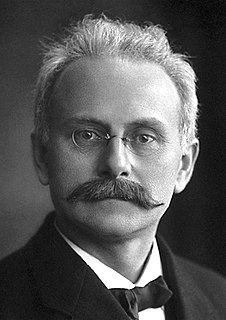A Quote by Barry Barish
I always wanted to be an experimental physicist and was attracted to the idea of using continuing advances in technology to carry out fundamental science experiments that could not be done otherwise.
Related Quotes
I think it's science and physics are just starting to learn from all these experiments. These experiments have been carried out hundreds and hundreds of times in all sorts of ways that no physicist really questions the end point. I think that these experiments are very clearly telling us that consciousness is limitless and the ultimate reality.
This is a really big space station. We do a lot of various kinds of work here, different kinds of science experiments; we have over 400 different experiments going on at any one time in different areas, from basic science research to medical technology, that hopefully will benefit more people on Earth.
Philosophers of science constantly discuss theories and representation of reality, but say almost nothing about experiment, technology, or the use of knowledge to alter the world. This is odd, because 'experimental method' used to be just another name for scientific method.... I hope [to] initiate a Back-to-Bacon movement, in which we attend more seriously to experimental science. Experimentation has a life of its own.
The difficulty in today's world is our technology and science has outrun our theological advances. The reason for that is in technology and science, we have had the courage to ask the single question that theology has been afraid to ask: "Is it possible that there's something I don't know about this, the knowing of which would change everything?"
I got to get the right people in the right job. Because a lot of costs can be taken out in the context of your administration without the legislature. For example, using technology to do more with less. Using technology to fight fraud. Reorganizing and streamlining can be done within the context of the administration.
I got to get the right people in the right job. Because a lot of costs can be taken out in the context of your administration without the legislature.For example, using technology to do more with less. Using technology to fight fraud. Reorganizing and streamlining can be done within the context of the administration.
I've had only one idea in my life - a true idee fixe. To put it as bluntly as possible - the idea of having my own way. 'Control!' expresses it. The control of human behavior. In my early experimental days it was a frenzied, selfish desire to dominate. I remember the rage I used to feel when a prediction went awry. I could have shouted at the subjects of my experiments, 'Behave, damn you! Behave as you ought!
When you look at any experimental work not directly related to economics, but trying to test rational behavior in other ways, experiments have conspicuously failed to show rational behavior. Macro evidence certainly suggests deviations from rationality, but I don't want to say the rationality hypothesis is completely wrong. If you have any introspective idea or experimental idea about people's behavior, it seems to be incompatible with the really full scale rational expectations.



































